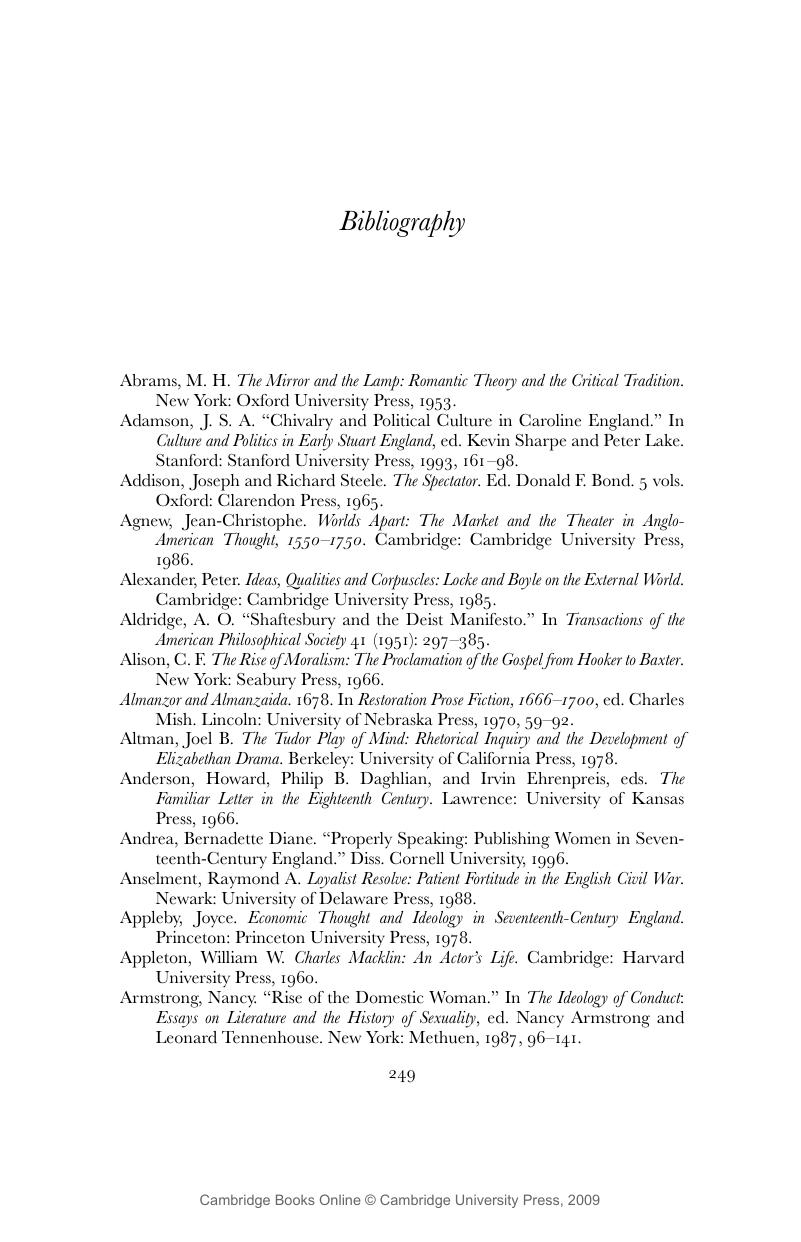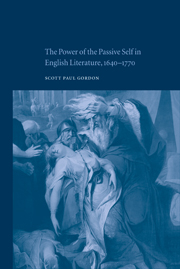Book contents
- Frontmatter
- Contents
- Acknowledgments
- Introduction. “Spring and Motive of our Actions”: disinterest and self-interest
- 1 “Acted by Another”: agency and action in early modern England
- 2 “The belief of the people”: Thomas Hobbes and the battle over the heroic
- 3 “For want of some heedfull Eye”: Mr. Spectator and the power of spectacle
- 4 “For its own sake”: virtue and agency in early eighteenth-century England
- 5 “Not perform'd at all”: managing Garrick's body in eighteenth-century England
- 6 “I wrote my Heart”: Richardson's Clarissa and the tactics of sentiment
- Epilogue: “A sign of so noble a passion”: the politics of disinterested selves
- Notes
- Bibliography
- Index
- References
Bibliography
Published online by Cambridge University Press: 22 September 2009
- Frontmatter
- Contents
- Acknowledgments
- Introduction. “Spring and Motive of our Actions”: disinterest and self-interest
- 1 “Acted by Another”: agency and action in early modern England
- 2 “The belief of the people”: Thomas Hobbes and the battle over the heroic
- 3 “For want of some heedfull Eye”: Mr. Spectator and the power of spectacle
- 4 “For its own sake”: virtue and agency in early eighteenth-century England
- 5 “Not perform'd at all”: managing Garrick's body in eighteenth-century England
- 6 “I wrote my Heart”: Richardson's Clarissa and the tactics of sentiment
- Epilogue: “A sign of so noble a passion”: the politics of disinterested selves
- Notes
- Bibliography
- Index
- References
Summary

- Type
- Chapter
- Information
- The Power of the Passive Self in English Literature, 1640–1770 , pp. 249 - 272Publisher: Cambridge University PressPrint publication year: 2002



